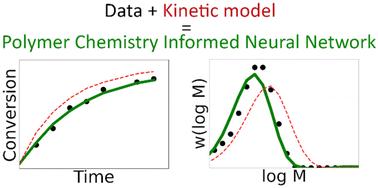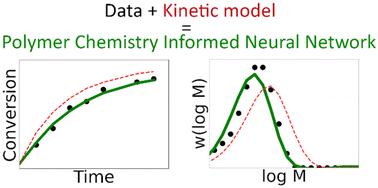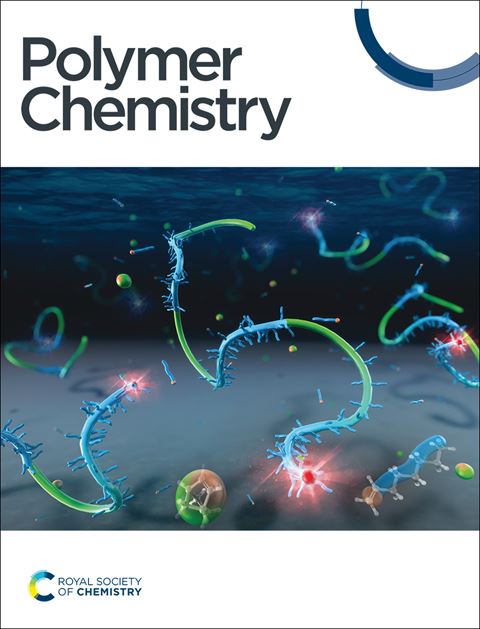用于聚合过程数据驱动建模的聚合物化学信息神经网络(PCINNs)
IF 4.1
2区 化学
Q2 POLYMER SCIENCE
引用次数: 0
摘要
尽管神经网络现已广泛应用于许多实际领域,但由于训练模型需要大量数据,而且在训练数据集之外进行推断时预测性能不可靠,因此在科学工作中使用神经网络作为预测模型往往具有挑战性。在这项工作中,我们展示了一种方法,通过这种方法,我们可以将动力学模型形式的聚合过程知识纳入训练过程,从而克服聚合反应建模过程中的上述两个问题。这样就可以利用小到单个样本的数据集生成准确的、数据驱动的聚合过程预测模型。我们以溶液聚合过程为例演示了这种方法,结果表明这种方法明显优于传统神经网络等纯归纳学习系统,而且还能改进现有第一原理动力学模型的预测。本文章由计算机程序翻译,如有差异,请以英文原文为准。


Polymer chemistry informed neural networks (PCINNs) for data-driven modelling of polymerization processes†
Although the use of neural networks is now widespread in many practical applications, their use as predictive models in scientific work is often challenging due to the high amounts of data required to train the models and the unreliable predictive performance when extrapolating outside of the training dataset. In this work, we demonstrate a method by which our knowledge of polymerization processes in the form of kinetic models can be incorporated into the training process in order to overcome both of these problems in the modelling of polymerization reactions. This allows for the generation of accurate, data-driven predictive models of polymerization processes using datasets as small as a single sample. This approach is demonstrated for an example solution polymerization process where it is shown to significantly outperform purely inductive learning systems, such as conventional neural networks, but can also improve predictions of existing first principles kinetic models.
求助全文
通过发布文献求助,成功后即可免费获取论文全文。
去求助
来源期刊

Polymer Chemistry
POLYMER SCIENCE-
CiteScore
8.60
自引率
8.70%
发文量
535
审稿时长
1.7 months
期刊介绍:
Polymer Chemistry welcomes submissions in all areas of polymer science that have a strong focus on macromolecular chemistry. Manuscripts may cover a broad range of fields, yet no direct application focus is required.
 求助内容:
求助内容: 应助结果提醒方式:
应助结果提醒方式:


